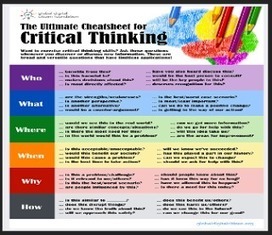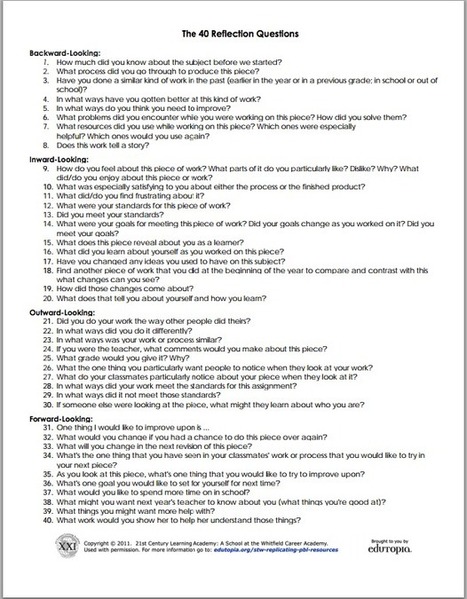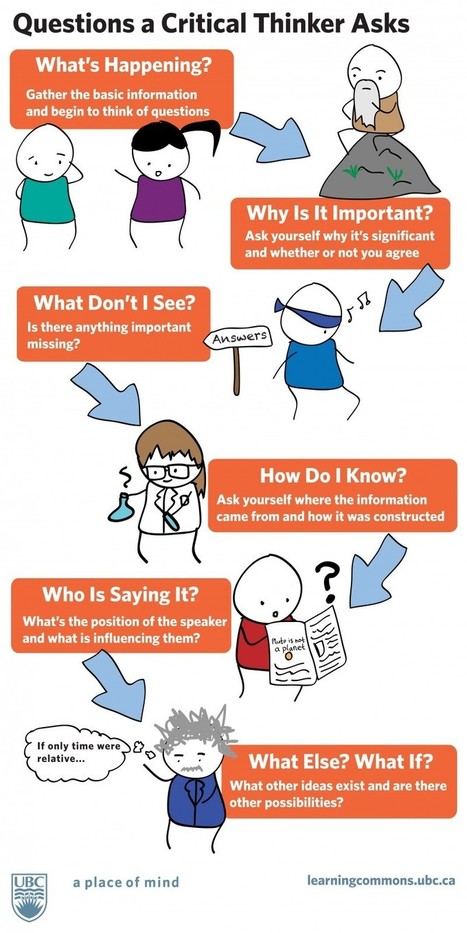Are your learners failing to apply the acquired knowledge from online learning to their jobs? How do you ensure effective knowledge transfer? Answer these 10 questions before, during, and post eLearning development and ensure effective knowledge transfer.
Research and publish the best content.
Get Started for FREE
Sign up with Facebook Sign up with X
I don't have a Facebook or a X account
Already have an account: Login
Literacy in a digital education world and peripheral issues.
Curated by
Elizabeth E Charles
 Your new post is loading... Your new post is loading...
 Your new post is loading... Your new post is loading...

Marshall Alston's curator insight,
March 27, 2017 1:35 PM
Depending on what you are trying to learn will depend on how you ask a question.
R's curator insight,
April 6, 2017 1:23 PM
Telling = Status Quo
Insightful Questions = Activated Brains!

Beth Kanter's curator insight,
January 12, 2014 2:10 PM
This infographic is geared for educational technique and inquiry based learned. However, I think the different of questions illustrated here are excellent for content curations to ask when reviewing resources or putting together collections. 
Louise Robinson-Lay's curator insight,
January 12, 2014 4:11 PM
An infographic showing what sorts of questions we can ask when curating. |

Neha Singh's curator insight,
January 14, 2019 8:39 AM
Swipe enabling flip features slide features etc comes under which challenge of mobile technology
|







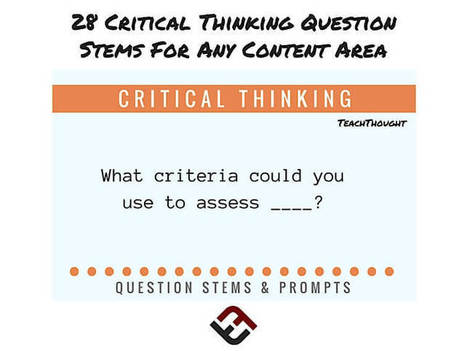






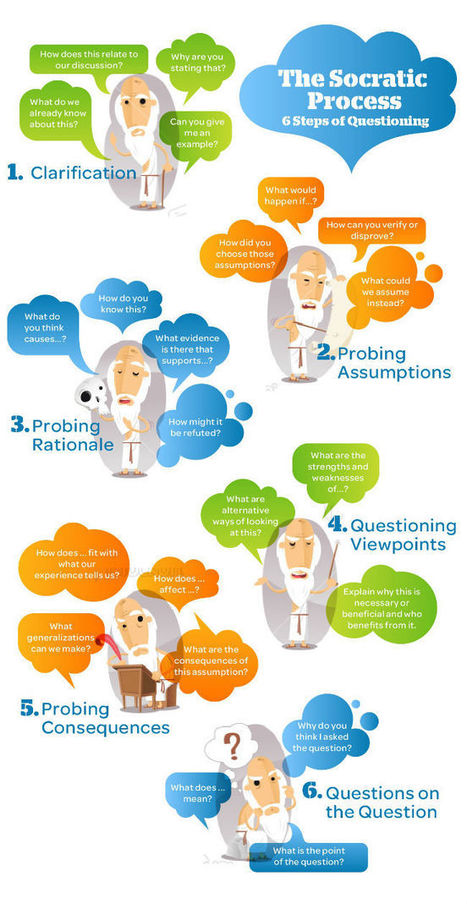


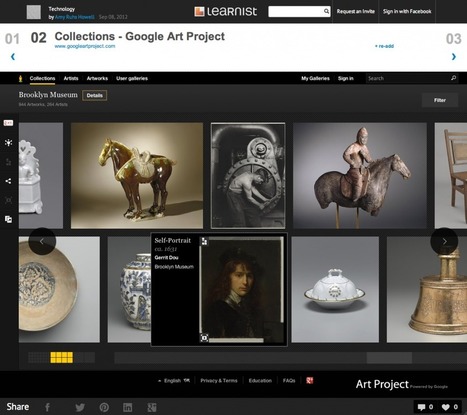


![Use These 5 Steps to Learn How to Ask Good Questions [Infographic] | Information and digital literacy in education via the digital path | Scoop.it](https://img.scoop.it/9Ig5e-RUbd2Bd5JiwjpP7Tl72eJkfbmt4t8yenImKBVvK0kTmF0xjctABnaLJIm9)

